The Last Duel
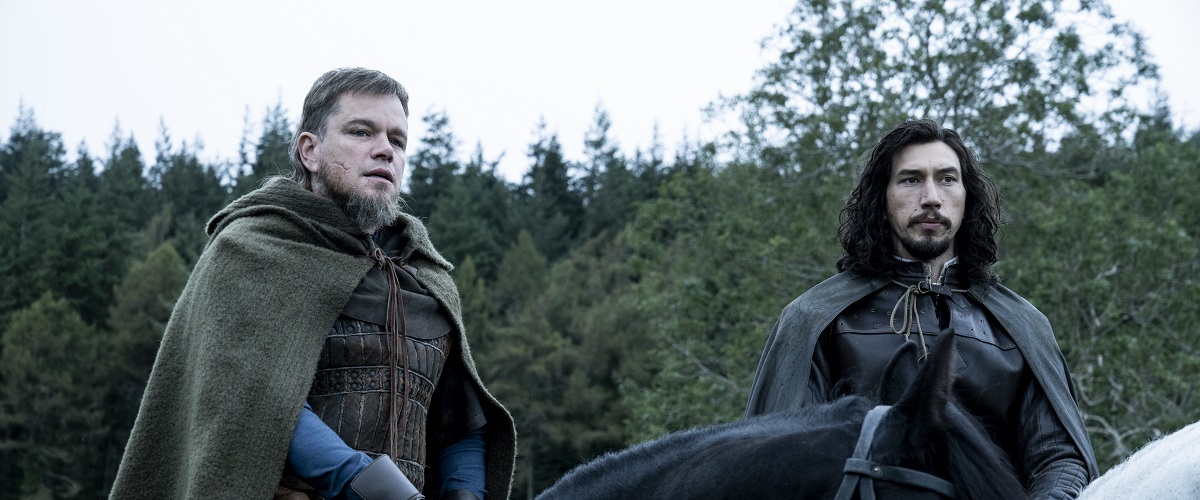
Over the decades, Ridley Scott has made several period films that are widely regarded as classics. More than several, if you expand your horizons to include films set in the future in the category of "period." But with Scott period is not a guarantee of pleasure. Not that any of his pictures have lacked for quality if you associate quality with production value and snazzy shooting and cutting. But sometimes Scott fails to put a sense of life on the screen. While " Gladiator " and " Kingdom of Heaven " throbbed with purposeful vitality, pictures such as "Robin Hood" and "1492: Conquest of Paradise" seemed to lack much of a reason for being.
Scott's "The Last Duel" may not be perfect but it never exhibits such inertia. This medieval intrigue comes courtesy of an unusual combination of talents: its screenplay, which is indeed based on true Medieval Events, is by Matt Damon and Ben Affleck (collaborating as writers, or at least as credited writers, for the first time since " Good Will Hunting ") and by Nicole Holofcener , best known for contemporary dramatic comedies with satiric bite and female-centered perspectives. Set in 14 th century France, it casts Damon and Affleck in central roles in a story about egocentric men playing at power and subjugating women, all the while using cardboard conceptions of concepts such as duty, loyalty, and fealty to God as the pretexts for their petty, criminal actions.
After a prologue presenting the beginning of the title duel—a match to the death between squires and one-time friends Sir Jean de Carrouges and Jacques Le Gris (Damon and an especially tense-necked Adam Driver , respectively)—the movie takes a " Rashomon "-inspired structure. The first "Truth According To Chapter" belongs to Damon's de Carrouges. In this episode Jean kicks things off by saving Jacques' life at the Battle of Limoges. Then he goes on to do other noble things, despite the disdain in which he is held by his liege, Pierre d'Alençon (Affleck). He marries the beautiful daughter of a one-time traitor, goes off to battle without hesitation, that sort of thing. All the while watching Le Gris rise higher and higher in the court and swallowing his pride when Le Gris is awarded land and titles he believed rightfully his. They fall in and out with each other. But they fall definitively out when Marguerite, Jean's wife ( Jodie Comer ), accuses Le Gris of rape.
And—I don't think this actually constitutes a spoiler, but if you're wary, maybe skip this paragraph—rape it most certainly is. The next chapter tells the truth according to Le Gris. In this account, Jean is a petulant, inappropriate whiner whose butt Le Gris is always covering; d'Alençon has little if any use for the squire. As for Marguerite, Le Gris "sincerely" loves her. This ruthless pragmatist is a man, and is thus, by his way of thinking, entitled to take her. When the devoutly Catholic rapist confesses to a priest, he admits not to rape but to "adultery." Advising him on his upcoming legal troubles, another cleric tells him "Rape is not a crime against a woman. It is a property matter."
The third chapter is billed as "The Truth According To Marguerite de Carrouges" and to drive a point home, the words "the truth" stay up longer on this title card than they do on the preceding. This is a lacerating sequence in which both Jean and Jacques are shown as chest-thumping brutes and opportunists. Jean believes he was tender to his bride; Marguerite's section tells mostly of how he bickered with Marguerite's father over her dowry. And so on. This telling repeats the rape scene, which is arguably necessary but uncomfortable—and of course that may be the point. What fascinates in these different perspectives are the small details—how one character remembers a brief kiss differently than another, how a pair of shoes removed daintily at the bottom of a stair in one telling becomes shoes falling off feet as the stairs are mounted in a panicked rush.
And it all leads up to the title duel which, even by the high standards set by Scott's "Gladiator," is what you'd call a humdinger.
There are plenty of nits one can pick about this picture. While Driver and Comer almost automatically fit into the movie's world of lances and horses and castles (and various views of Notre Dame Cathedral while under construction), Damon and Affleck are harder period sells. Especially with Affleck going blond here. No performer commits any outright fouls—the screenplay has them all speaking an only slightly treated form of American colloquial English, so there are no Shakespearean pitfalls present. But it's certain that connoisseurs of the "Sad Affleck" meme are gonna go to town once they can start getting screen shots from this movie.
Then of course there's the "how feminist is it, anyway?" question. I could say "more than a little," given that its observations pertaining to still-current issues land with some force and are arguably fortified in the context of medieval hypocrisy and barbarity. Nevertheless, while "The Last Duel" may be a partial model of mindfulness, it still obeys the requirements of the period action drama. This should surprise no one—this is a major studio multi-million dollar production overseen by a director whose work has only rarely skirted feisty indie territory. And let's not forget that when he has, it's been with just as mixed a bag of results as he's had throughout his career—I'm thinking " Thelma and Louise " on the credit side and "A Good Year" on the debit.
When it's delivering what the best of Scott and company's work can do—and the imagery, much of it grounded in a palette that could be a tribute to its anti-hero, whose last name translates as "the gray," is frequently startling—the commentary pursued by the movie's scenario isn't entirely subsumed, but it's not paramount, either.
Exclusively in theaters Friday, October 15th.


Glenn Kenny
Glenn Kenny was the chief film critic of Premiere magazine for almost half of its existence. He has written for a host of other publications and resides in Brooklyn. Read his answers to our Movie Love Questionnaire here .
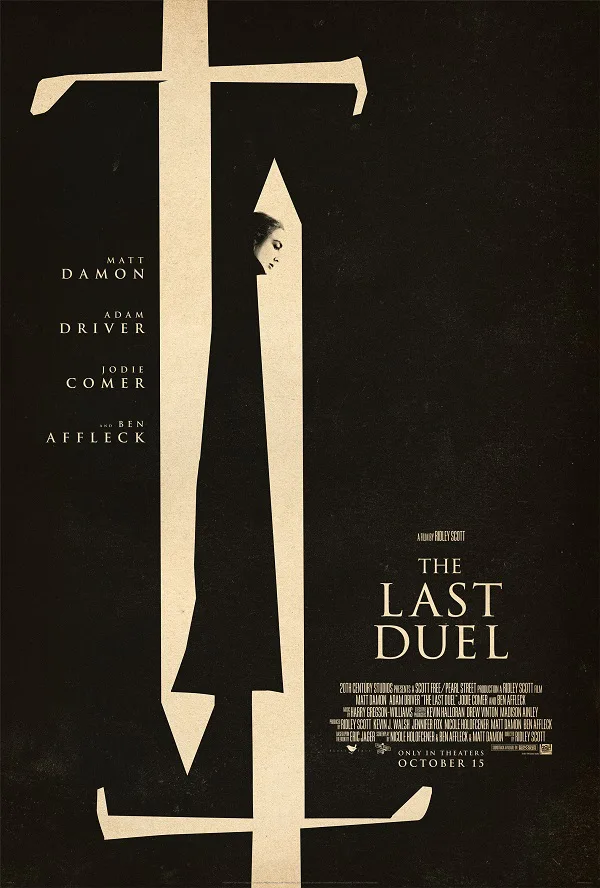
- Jodie Comer as Marguerite de Carrouges
- Matt Damon as Jean de Carrouges
- Adam Driver as Jacques Le Gris
- Ben Affleck as Count Pierre d'Alençon
- Marton Csokas as Crespin
- Harriet Walter as Nicole de Bouchard
- Clare Dunne as Celia
- Ben Affleck
- Nicole Holofcener
- Claire Simpson
Cinematographer
- Dariusz Wolski
- Harry Gregson-Williams
- Ridley Scott
Leave a comment
Now playing.

Unstoppable (2024)
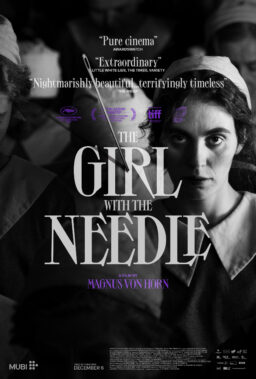
The Girl with the Needle
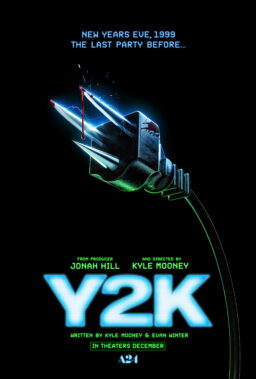
Striking Rescue
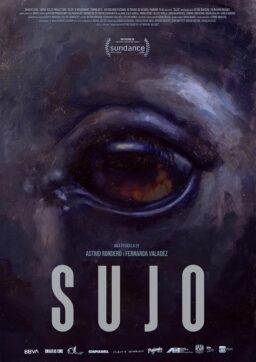
You Are Not Me
Latest articles.
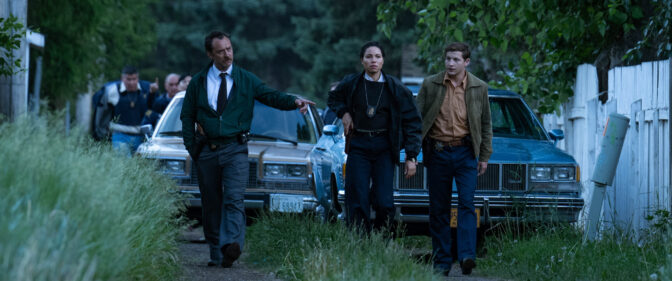
We Need Art More Than Ever: Jude Law, Jurnee Smollett on "The Order"
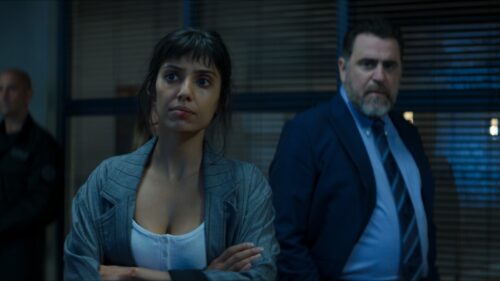
Hulu Stumbles with Warmed-Over Espionage Actioner "Paris Has Fallen"
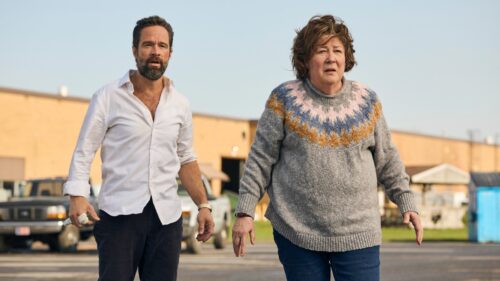
Margo Martindale Anchors the Clever, “Fargo”-esque Tale of “The Sticky”
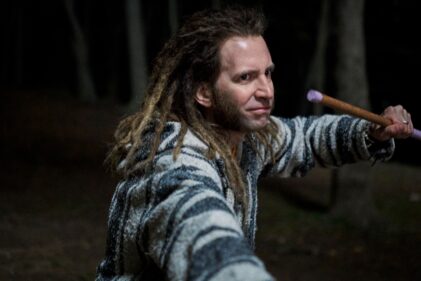
Kyle Mooney and Evan Winter Go Back in Time with "Y2K"
The best movie reviews, in your inbox.
Advertisement
Supported by
Critic’s Pick
‘The Last Duel’ Review: A Medieval Epic in the Age of #MeToo
Ridley Scott and his all-star cast rip the moldy fig leaf off chivalric romance in a he-said, he-said, she-said spectacle.
- Share full article

By Manohla Dargis
It’s no surprise that Ridley Scott, who’s made his share of swaggering manly epics, has directed what may be the big screen’s first medieval feminist revenge saga. In addition to his love for men with mighty swords, Scott has an affinity for tough women, women who are prickly and difficult and thinking, not bodacious cartoons. They’re invariably lovely, of course, but then everything in Ridley Scott’s dream world has an exalted shimmer.
Even the mud and blood gleam in “The Last Duel,” an old-style spectacle with a #MeToo twist. Based on the fascinating true story of a lady, a knight and a squire in 14th-century France, the story was big news back in the day and has been retrofitted to contemporary sensibilities by Scott and an unusual troika of screenwriters: Nicole Holofcener and two of the movie’s stars, Matt Damon and Ben Affleck. Together, they tear the moldy fig leaf off a Hollywood staple, the Arthurian-style romance — with its chivalric code, knightly virtues and courtly manners — to reveal a mercenary, transactional world of men, women and power. The result is righteously anti-romantic.
Damon, uglied up with slashing facial scars and a comically abject mullet, plays Jean de Carrouges, a nobleman down on his luck who makes ends meet by fighting on behalf of the king. The machinations start early and soon go into overdrive after he marries a younger woman, Marguerite (Jodie Comer), who brightens his life but doesn’t do much for his sour disposition or unfortunate grooming. Vainglorious and petty, his lips screwed into a pucker, Jean settles down with Marguerite but seethes over his friend turned antagonist, Jacques Le Gris (Adam Driver, a juiced-up Basil Rathbone), a social climber aligned with Count Pierre, a licentious power player (Affleck, in debauched glory).
It’s a juicy lineup of familiar characters who are greedier and pettier than those that usually populate historical epics. But there is no noblesse oblige or courtly love, no dragons, witchy women or aggrandizing British accents. Instead, there are debts, grudges, fights, liaisons, an occasional naked nymph and men endlessly jockeying for position. Jean marries Marguerite to boost his prestige and wealth; Jacques enriches himself by currying favor with Pierre. For her part, Marguerite is passed from father to husband, who later, in a startling moment, commands her to kiss Jacques in public as evidence of Jean’s resumed good will toward his frenemy. It’s a catastrophic gesture.
The story’s action is visceral and relentless; the atmosphere gray and thick with intrigue. Scott likes to throw a lot on the screen — the movie churns with roaring men, galloping horses, shrieking minions — which can clutter up a story but here creates insistent momentum. This churn throws the quieter bits into relief, giving you room to breathe and the characters time to scheme. These lulls also allow the filmmakers to lay out some of the brute details of everyday life in the Middle Ages, even for a noble like Jean who slogs off to war for money. In this world of homosocial relations, men continually and often violently negotiate their place among other men, and always for gain.
The script is solid, shrewd and fairly faithful to its source material, Eric Jager’s nonfiction page-turner “The Last Duel: A True Story of Crime, Scandal and Trial by Combat.” The crime in question was the alleged rape in 1386 of the wife of one noble by another of lesser rank. Her husband presented the case to Charles VI , demanding the right to a judicial duel, or trial by combat. If the husband wins it ostensibly proves the truth of his claim, a.k.a. God’s will. Die or yield, he is guilty; if he survives, he will be hanged, and his wife burned alive. As Jager emphasizes, rape was a crime in medieval Europe, even punishable by death, but it wasn’t a crime against the woman but her male guardian.
Jager gives the three figures at the center of this drama their due, although, like the medieval text that inspired him, his account is weighted toward the dueling noblemen. The movie tries to more emphatically foreground Marguerite by making her a relatively equal participant in her own tragedy. It does this on a structural level by dividing the story into chapters and placing her version of events alongside those of the two men: he said, he said, she said. This splitting evokes “Rashomon,” in which various characters narrate the same crime — also a rape — from conflicting points of view, creating a sense of relative truth. But there’s no such ambiguity in “The Last Duel.”
Rape as a plot device has a long, grotesque history; it’s useful for metaphors and shocks but rarely has anything to do with women, their bodies or pain. In presenting Marguerite’s point of view — everything shifts meaningfully in her version, including how she sees her husband and the assault — “The Last Duel” seeks to upend that tradition. It doesn’t fully succeed and the movie still leans toward the men, their actions and stratagems. Partly this is a problem of history. As a 14th-century woman, Marguerite is bred to acquiesce and, for the most part, is acted upon rather than acts. While the movie is feminist in intent and in meaning, and though she’s given narrative time, she remains frustratingly opaque, without the inner life to balance the busily thrashing men.
“The Last Duel” works best as an autopsy of corrosive male power, which creates a certain amount of unresolved tension given how much Scott enjoys putting that power on display, including during the duel. The movie is weirdly entertaining, but the world it presents, despite its flourishes of comedy, is cold, hard and unforgiving. Few come out looking good, not the antagonists or giggly king (Alex Lawther), the conniving clergyman or Jean’s unsympathetic mother (Harriet Walter), a proxy for every woman who’s ever told other women to shut up and take it. Marguerite didn’t, but however blurrily history remembers her, she made her mark with a vengeance.
The Last Duel Rated R for sexual violence and the usual medieval barbarism. Running time: 2 hours 32 minutes. In theaters.
Manohla Dargis has been the co-chief film critic since 2004. She started writing about movies professionally in 1987 while earning her M.A. in cinema studies at New York University, and her work has been anthologized in several books. More about Manohla Dargis
Explore More in TV and Movies
Not sure what to watch next we can help..
A Night at the Opera : Angelina Jolie plays the superstar soprano Maria Callas in the new movie “Maria.” We went to the Metropolitan Opera with her and the director Pablo Larraín .
More Than a Disney Princess : “Moana” made Auli’i Cravalho a breakout star. Now she’s back in the sequel , while also making her Broadway debut and embracing edgier parts.
The Reintroduction of Daniel Craig : The actor’s vulnerable performance in “Queer” may surprise fans of the former James Bond star, but it’s a return to the sexually daring films he used to make .
Streaming Guides: If you are overwhelmed by the endless options, don’t despair — we put together the best offerings on Netflix , Max , Disney+ , Amazon Prime and Hulu to make choosing your next binge a little easier.
Watching Newsletter: Sign up to get recommendations on the best films and TV shows to stream and watch, delivered to your inbox.
We sent an email to [email protected]
Didn't you get the email?
By joining, you agree to the Terms and Policies and Privacy Policy and to receive email from the Fandango Media Brands .
username@email
By continuing, you agree to the Privacy Policy and the Terms and Policies , and to receive email from the Fandango Media Brands .
Log in or sign up for Rotten Tomatoes
Trouble logging in?
By creating an account, you agree to the Privacy Policy and the Terms and Policies , and to receive email from Rotten Tomatoes and to receive email from the Fandango Media Brands .
By creating an account, you agree to the Privacy Policy and the Terms and Policies , and to receive email from Rotten Tomatoes.

Email not verified
Let's keep in touch.

Sign up for the Rotten Tomatoes newsletter to get weekly updates on:
- Upcoming Movies and TV shows
- Rotten Tomatoes Podcast
- Media News + More
By clicking "Sign Me Up," you are agreeing to receive occasional emails and communications from Fandango Media (Fandango, Vudu, and Rotten Tomatoes) and consenting to Fandango's Privacy Policy and Terms and Policies . Please allow 10 business days for your account to reflect your preferences.
OK, got it!
- About Rotten Tomatoes®
- Login/signup
Movies in theaters
- Opening This Week
- Top Box Office
- Coming Soon to Theaters
- Certified Fresh Movies
Movies at Home
- Fandango at Home
- Prime Video
- Most Popular Streaming Movies
- What to Watch New
Certified fresh picks
- 89% Wicked Link to Wicked
- 89% The Order Link to The Order
- 95% Beatles '64 Link to Beatles '64
New TV Tonight
- 64% Secret Level: Season 1
- -- Dexter: Original Sin: Season 1
- -- Bookie: Season 2
- -- No Good Deed: Season 1
- -- Dream Productions: Season 1
- -- The Great British Baking Show: Holidays: Season 7
- -- Queer Eye: Season 9
- -- Paris & Nicole: The Encore: Season 1
- -- Die Hart: Season 3
Most Popular TV on RT
- 98% Black Doves: Season 1
- 96% Star Wars: Skeleton Crew: Season 1
- 74% The Madness: Season 1
- 94% Creature Commandos: Season 1
- 100% Arcane: League of Legends: Season 2
- 85% The Day of the Jackal: Season 1
- 95% A Man on the Inside: Season 1
- 70% Dune: Prophecy: Season 1
- 66% The Agency: Season 1
- 36% Senna: Season 1
- Best TV Shows
- Most Popular TV
Certified fresh pick
- 94% Creature Commandos: Season 1 Link to Creature Commandos: Season 1
- All-Time Lists
- Binge Guide
- Comics on TV
- Five Favorite Films
- Video Interviews
- Weekend Box Office
- Weekly Ketchup
- What to Watch
Box Office 2024: Top 10 Movies of the Year
All Star Trek Movies Ranked by Tomatometer
What to Watch: In Theaters and On Streaming.
Awards Tour
Anora wins Best Picture at Los Angeles Film Critics
Rotten Tomatoes Predicts the 2025 Golden Globe Nominations
- Trending on RT
- Awards Season
- Re-Release Calendar
- New Animated Movies
- TV Premiere Dates
The Last Duel Reviews

Here, [Scott] powerfully deconstructs the framework of those macho tales while still delivering a thrilling big-budget epic.
Full Review | Original Score: 4/5 | Sep 19, 2024
Despite being a historical film, The Last Duel is in tune with the current feminist wave, making a story from the past echo in the present, and without forcing this resource like most current films...
Full Review | Original Score: 9/10 | Aug 16, 2024
The tri-perspective story emphatically works. It also has the benefit of making room for three excellent performances from the leads.
Full Review | Jul 18, 2024
The Last Duel manages to deliver this message eloquently through a high-stake character study, another engaging piece of work from a knight in his own right, Sir Ridley Scott.
Full Review | Original Score: 4/5 | Jul 15, 2024
The titular duel absolutely lives up to the hype. The brutality of the time is encapsulated perfectly in Ridley's vision.
Full Review | Feb 24, 2024
The Last Duel is really the best of both worlds: action-packed and devoted to the right side of history.
Full Review | Original Score: 7.9/10 | Oct 30, 2023
Rashomon may have inspired the story, but this is like the paper that Rashomon came wrapped in, a costume drama with modern relevance detailed in a highlighter pen. Everyone is locked up in the tragedy of their circumstances, but you don’t feel it.
Full Review | Sep 16, 2023
Ridley Scott’s best film in awhile. An epic, brutal, but intimate at its heart/soul of its story. A lot of this comes thanks to a fascinating script that brings a unique structure to the entire story.
Full Review | Jul 26, 2023
The actual duel is one of the most nerve-wracking sequences of the last few years, compensating the audience's patience with a satisfying climax.
Full Review | Original Score: A- | Jul 25, 2023
In The Last Duel, Comer does a magnificent job of portraying a smart, sensitive female trapped in a world where she is considered merely the property of a male.
Full Review | Jun 5, 2023
With the stakes set so high, Scott rises to the challenge and delivers a brutal, visceral “last duel” with complex narrative designs and a phenomenal carousel of performances.
Full Review | Original Score: 4/5 | Nov 12, 2022
It’s troublesome, and thematically counterintuitive, that the violence is more believable than the on-the-nose manner in which the film handles discussion of the sexual assault; fortunately, both elements are equal in their lack of subtlety.
Full Review | Sep 15, 2022
Though slightly hobbled by its script’s unconventional style, The Last Duel soars when the sensational Jodie Comer takes center stage in the third act.
Full Review | Original Score: 3.5/5 | Sep 1, 2022
Despite a stellar cast, a legendary director and a potentially interesting storytelling structure, the film itself fails to deliver on its stated purpose or provide adequate entertainment to overlook its shortcomings.
Full Review | Original Score: 2/5 | Aug 22, 2022
The movie hits the mark, this has always happened, and things haven't changed much. [Full review in Spanish]
Full Review | Jun 28, 2022
It's Comer who shines the brightest in this film. She gives Marguerite a strong and powerful backbone that allows her to stand up for what's right and for all women.
Full Review | Original Score: 8/10 | Jun 21, 2022
THE LAST DUEL is a super immersive production, brought to life by powerhouse performances, thats brutal and entertaining, as well as thought-provoking. Simply a great package.
Full Review | Original Score: 8/10 | Apr 25, 2022
The Last Duels long runtime and grim subject matter may make it a difficult watch, but ... this is a brutal and highly effective historical drama that explores gender dynamics and egomania in a way thats depressingly still topical.
Full Review | Original Score: 9/10 | Feb 28, 2022
Ridley Scott is still at the top of his game and the film gives Comer the iconic and impressive role needed to define a career.
Full Review | Original Score: A | Feb 15, 2022
Scott hasn't felt this engaged in his material for many years.
Full Review | Original Score: 4/4 | Feb 12, 2022
Things you buy through our links may earn Vox Media a commission.
The Last Duel Is a Bro-Down Epic With a Metal Heart

There are two Ridley Scotts. There’s Ridley the Visionary and then there’s Ridley the Populist. Each has delivered his share of masterpieces, duds, and problematic cult favorites: Visionary Ridley gave us Blade Runner but also 1492: Conquest of Paradise and The Counselor , while Populist Ridley gave us Gladiator and Thelma & Louise but also G.I. Jane and White Squall . The two do sometimes meet. Alien is the work of both an art student with big ideas and a first-rate entertainer; Black Hawk Down is a rousing, Cubist war movie; and though Kingdom of Heaven ’s theatrical cut is a pandering mess, its director’s cut is, amazingly, a sublime, thoughtful masterpiece. This tension has run throughout the course of Scott’s career, and it’s one reason that approaching any new film from him is a wonderfully suspenseful ordeal. You never know if you’ll leave the theater enthralled, excited, bored, or utterly perplexed.
Which brings us to Scott’s latest effort, the medieval drama The Last Duel . With its tripartite structure — the picture is split into three sections, each showing the same series of events from a different perspective — and grim subject matter — it’s about the last sanctioned duel in France, a 1386 standoff between two men over a grisly accusation of rape — one may expect the film to be something distant, grave, challenging, complicated. But somehow it turns out to be Scott’s most entertaining movie in decades.
Is that even allowed when the subject matter is so disturbing? The three characters at the heart of The Last Duel are Jean de Carrouges (Matt Damon), a French nobleman known for his loyalty, bravery, and ferocity; his wife, Marguerite (Jodie Comer), the beautiful daughter of a disgraced nobleman, whom Jean marries partly in an effort to alleviate his crippling financial burdens; and Jacques Le Gris (Adam Driver), Jean’s comrade in arms, a squire who rises precipitously in the ranks at Jean’s expense when he becomes a confidant and enforcer of their lord, Count Pierre d’Alençon (Ben Affleck), a hedonistic, shallow dandy. The film first charts the dissolution of Jean and Jacques’s relationship over matters of money, rank, and jealousy. Thanks to Jacques’s devotion to Pierre, he gets the captainship Jean once felt was his birthright as well as the land promised to Jean in Marguerite’s dowry. An outraged Jean repeatedly raises a stink to their lord about the fact that his former friend is getting all the things that were once rightfully his, which of course puts him in further disfavor with the sniveling Pierre. Everything comes to a head, however, when Marguerite accuses Jacques of raping her while Jean was away hunting down his payment for battle. An irate Jean takes the complaint all the way to King Charles (Alex Lawther). The duel of the title is less a duel and more a vicious, metal-as-fuck trial by combat between Jean and Jacques — a spittle-flecked, grotesque orgy of hacking, slicing, and stabbing that’s alternately lumbering and frenetic.
We see the labyrinthine series of incidents leading up to the duel from Jean’s perspective, then Jacques’s, then Marguerite’s. The script was written by Affleck, Damon, and Nicole Holofcener, with the men handling the sections from the male point of view and Holofcener handling the female variation. It may at first seem like a Rashomon -style exercise in exploring the slippery nature of truth, but in fact it’s quite the opposite: Each of the three chapters begins with the words The truth according to … but they all basically tell the same story.
What does shift is the emotional valence of the scenes. A brave, impulsive charge into a group of murderous soldiers in Jean’s telling is revealed in Jacques’s to be a dumb stumble into an enemy trap. In Jacques’s version of the events, we see him trying to defend the broke, not-very-bright Jean to his callow lord, Pierre, but what Jacques thinks are scraps that Jean should be happy with are seen by Jean as insults to his unquestioning loyalty. Jean’s rage at the rape accusation, viewed by him as a matter of principle, is revealed in Marguerite’s eyes to be fueled as much by fury at her for putting him in this situation. To him, she’s not so much a wife as a piece of property that dares, inconveniently, to have a mind and a soul. To her, he’s a crude storm she must do everything to weather. Tonal emphasis becomes everything as we go from one point of view to another, but the truth itself is rarely in doubt. What we’re watching isn’t a deconstruction. It’s a denunciation, a damnation, and just about all the men are going down.
Relatively little is known about the real-life events depicted here, which frees the film to animate this long-ago world with the sensibilities of our own. (And why the hell shouldn’t it? We’re the ones watching, after all.) Marguerite, who briefly bonds at one point with Jacques over their shared love of medieval romance literature, doesn’t exactly feel as if she belongs in the 14th century. Comer lends her an inner conflict that feels thoroughly relatable: She doesn’t want to rock the boat, but she has reached her limits. Meanwhile, the seesawing friendship between Jean and Jacques feels not like the tangled, alien relationship of two men who lived and fought 600+ years ago but like something closer to the emo fallout of a modern-day bromance undone by unspeakable breh-trayal. Damon brings to Jean the dim, burly solidity he has mastered in his middle-age: From one angle, he’s a steadfast, reliable soldier; from another, he’s so dull and hard that he’s thoroughly unaware of the world or others in it.
And then there’s Affleck’s wonderfully skeezy Pierre, a marvelously out-there creation who shouldn’t work at all and yet becomes an engine of uneasy delights. “He’s no fucking fun,” Pierre declares of Jean, a line that should be a throwaway bit of levity but that Affleck delivers with such debauched, motormouth aplomb that as soon as he says it, we understand Damon’s Jean de Carrouges is never, ever, ever going to get what he wants from this entitled mollusk of a man. Pierre is so disdainful of everything (my favorite bit: Affleck pronounces the locality of Bellême as blahm ) we can practically smell the contempt. When he appoints Jacques to a high position, he playfully waves his hands in a mocking, abracadabra motion, right before the film cuts to a group of soldiers enacting an elaborate ritual for Jacques’s ascension. This performance is not a joke: Affleck’s dismissiveness underlines the empty, corrupt gestures that lie at the heart of the rules, rituals, and traditions to which Damon’s and Driver’s characters — and societies in general — have wedded themselves. It also reveals how the casual words and actions of the powerful lead to life-destroying consequences for those beneath them. Affleck isn’t just showing off here. His imperious performance is a sly messenger for the film’s moral vision, both hilarious and choke-on-your-laughs tragic.
All this could easily have resulted in a slog. Movies that repeat multiple scenes from different perspectives can become tedious really quickly. And in truth, Scott hasn’t always been the most confident of storytellers. He’s a master of mood and composition, but he tends to be at his best when working with narratives that have been stripped to their essentials. The Last Duel is full of incident and historical detail, and its universe is a complicated one — but it seems the script, by its very nature, has ingeniously done all the necessary underlining for us. Even as it pretends to add complexity and context, it simplifies and focuses. It’s not so much a history lesson as it is a savage, beautiful catharsis — a bonfire of the bros.
More Movie Reviews
- Who Needs Gods When You Have Ralph Fiennes?
- Y2K Will Make You Nostalgic for a Funnier Comedy
- The Order Is An Unforgettable and Disturbing Crime Drama
- movie review
- the last duel
- ridley scott
- ben affleck
- jodie comer
- adam driver
- nicole holofcener
Most Viewed Stories
- Cinematrix No. 256: December 8, 2024
- The Best Movies of 2024, According to John Waters
- Taylor Sheridan Is Throwing a Yellowstone Tantrum
- Yellowstone Recap: The American Dream
- Lioness Season-Finale Recap: Wasteland of the Free
- Saturday Night Live Recap: Paul Mescal Tries Something New
Most Popular
What is your email.
This email will be used to sign into all New York sites. By submitting your email, you agree to our Terms and Privacy Policy and to receive email correspondence from us.
Sign In To Continue Reading
Create your free account.
Password must be at least 8 characters and contain:
- Lower case letters (a-z)
- Upper case letters (A-Z)
- Numbers (0-9)
- Special Characters (!@#$%^&*)
As part of your account, you’ll receive occasional updates and offers from New York , which you can opt out of anytime.
- Skip to main content
- Keyboard shortcuts for audio player

Movie Reviews
- LISTEN & FOLLOW
- Apple Podcasts
- Amazon Music
Your support helps make our show possible and unlocks access to our sponsor-free feed.
'The Last Duel' is a 'Rashomon'-style #MeToo story — and a messy medieval epic

Justin Chang

Adam Driver and Matt Damon play real-life combatants Jacques Le Gris and Sir Jean de Carrouges in The Last Duel. Patrick Redmond/20th Century Studios via AP hide caption
Adam Driver and Matt Damon play real-life combatants Jacques Le Gris and Sir Jean de Carrouges in The Last Duel.
The Last Duel is a sprawling, often ungainly movie — a talky, three-part Rashomon -style drama that mixes past and present-day politics — but there's a bracing intelligence to its messiness. It opens the way a lot of Ridley Scott period epics do, on a gloomy day with two sides preparing for battle.
We're in Paris in the year 1386, and the combatants are the dashing squire Jacques Le Gris — that's Adam Driver — and the sullen knight Sir Jean de Carrouges — that's Matt Damon . Jean's wife, Marguerite, played by Jodie Comer, watches anxiously from her seat. Just as the two men are about to clash lances, the movie cuts away and rewinds several years to show what brought these three characters to this moment.
There's a lot more rewinding to come. The Last Duel is based on a true story that it tells no fewer than three times, each time from a different character's perspective. The script, adapted from Eric Jager's nonfiction book , emerged from a unique collaboration among three writers. Damon and Ben Affleck wrote the first two chapters focusing on the men, while Nicole Holofcener wrote the third chapter centering on Marguerite. It's an ingenious approach to what plays like a medieval #MeToo story, tackling the dynamics of power, class and gender in an era when women were regarded as little more than male property.
The opening chapter focuses on Carrouges, played by Damon with a righteous scowl and a mullet so hideous it almost immediately turns you against him. Carrouges is a brave warrior from a long line of brave warriors, but also a proud, petty man with a chip on his shoulder. We first see him and Le Gris in 1370, fighting valiantly against the English and becoming close friends. But Carrouges begins to feel resentful when their superior — Count Pierre d'Alençon, a saucy libertine played hilariously by Affleck — takes Le Gris under his wing. The count even gives Le Gris a coveted piece of land that was originally intended for Carrouges as part of his wife Marguerite's dowry, leading to years of legal struggles.
Then one evening, Marguerite comes forward and tells her husband that while he was away, Le Gris came to their castle in Normandy and raped her. Carrouges takes the accusation public, setting in motion a duel between himself and Le Gris, which would become the last trial by combat officially recognized in France.
At this point, the first chapter ends and the movie returns to the beginning, this time replaying events from Le Gris' perspective. As one of the count's closest allies, Le Gris has come to enjoy a life of privilege and debauchery, and Driver basically plays him as God's gift to women. That stokes his tensions with Carrouges, who eventually is made a knight and demands that Le Gris show him respect.
Around this time, Le Gris falls madly in love with Marguerite and becomes certain that she reciprocates his feelings. That brings us to their fateful encounter, in which Le Gris convinces himself that Marguerite's protests are merely the signs of a guilty conscience. But even though the movie is showing us his version of events, it rejects his delusion completely: What we see is unmistakably a sexual assault, in which Marguerite repeatedly says no and tries to push him away.
The third chapter, which unfolds from Marguerite's perspective, revisits the rape scene, and for some viewers — fair warning — it may seem like one grueling replay too many, especially since Marguerite's trauma is now even more apparent. But this is also the chapter in which the moral arc of the story snaps into focus. After so much boorish male behavior, fully embodied by Damon and Driver, the fierce intelligence and humanity of Comer's performance is like a balm. Marguerite emerges as by far the most honest and clear-eyed of the movie's three leads, heroic in her refusal to stay silent about what she endured.
Near the end of the film, Marguerite finds herself on trial, forced to defend her rape allegation in a court full of men trying to discredit her. The sequence plays like dark satire, suggesting how much has changed and also how much hasn't. And then there's the duel, which feels almost subversively anticlimactic: It delivers all the gory virtuosity you'd expect from Ridley Scott, but something about it rings deliberately hollow. It hardly matters which man wins, the movie seems to be saying, in a world where women are destined to lose.
- the last duel
- Search Please fill out this field.
- Newsletters
- Sweepstakes
- Movie Reviews
The Last Duel review: A starry, brutal epic rises above its ridiculous hair
You've got (chain)mail.
:max_bytes(150000):strip_icc():format(webp)/image001-1-96bff255cc7d4c8da59d9d4192867e86.jpg)
However unlucky you might have been in life, be glad you're not a lady living through the 14th century. There's not much that Jodie Comer 's Marguerite de Carrouges doesn't endure in The Last Duel , a movie that is about many things — love, war, the vagaries of the medieval French legal system — but mostly, in the end, male vanity. It's also helmed by Ridley Scott , a director who knows his way around mud and blood and adrenaline, and stacked with A-list actors who have obligingly done terrible things to their hair. Are you not entertained? You will be, but queasily, maybe: Duel is entirely, often sensationally watchable without ever quite justifying why it needs to remind us what the world has done to women for centuries. (Or how it chooses to do that by playing out an extended rape scene not once but twice.)
It begins, like so many cautionary tales do, at the end: With two noblemen, Jean de Carrouges ( Matt Damon ) and Jacques Le Gris ( Adam Driver ) preparing to fight to the death for Marguerite's honor. She's adamant that Le Gris took her against her will; he's adamant he never touched her. Jean is ostensibly there to defend his wife, but he and Jacques have a long history — which the movie soon unspools by retelling the story through several viewpoints, Rashomon style. First and perhaps least interesting is Jean's: A widowed squire with an honorable name but no money, he's a dedicated soldier of the young King Charles VI (played as a giggling, vaguely sociopathic princeling by Alex Lawther). What Jean lacks in charm and couth he makes up for on the battlefield, and his title is enough to win him the hand of Marguerite, a land-rich beauty whose father has somehow disgraced the Crown, slashing her chances of a better, wealthier match — or at least one who doesn't have a pitted scar running from his cheek to his chin line.
Jean and Jacques are actually old friends thanks to their time in the trenches together, though it's hard to see how they connect otherwise: Jean is blunt and boorish, with a tendency to take outraged offense at any perceived slight; Driver's Jacques is a dashing (pre-)Renaissance man who reads Latin and German and looks fantastic in a cape. It's clear who the king's cousin, Count Pierre d'Alencon ( Ben Affleck ) prefers, and his favor goes a long way. When he casually gifts a part of Marguerite's dowry to Jacques, Jean does not, unsurprisingly, take the news well. But the pair mostly manage to tamp down their animosity until the day Jacques surprises Marguerite alone at home, and the disputed incident takes place. She demands justice, though not the kind her husband has in mind; he wants to bypass judicial remedies and proceed directly to a duel.
As Jacques' and then finally Marguerite's version of events play out, some fuller picture of the truth, however subjective that may be, begins to coalesce. Damon and Affleck cowrote the screenplay with writer-director Nicole Holofcener ( Enough Said , Friends with Money ), which was probably wise; a story so centered on sexual assault without a woman's voice in the script would feel frankly gross in the year of our Lord 2021. It's impossible to tell of course exactly what each one's contribution was, though on screen at least, it's Affleck who gets to have the most fun: His debaucherous Count — a breezy libertine in gold brocade and fluffed blond bangs — lifts the movie every time he's in the frame. Damon happily forfeits his likability for the sour, spluttering Jean, and Driver, a brooding Byronic stomper, neatly toes the line between charlatan and hero.
Scott manages to fill in the finer brushstrokes of all those characters and still fit the kind of bravura action set pieces he's known for; the fight scenes are breathlessly, bone-crunchingly brutal. The film also feels like something vanishingly rare these days: a big-screen drama with budget and scope, richly told for grown adults. (That the accents veer freely from flutey Shakespearean British to flat California standard is somehow not nearly as distracting as it should be — or far less, at least, than Damon's honey-badger mullet). But the movie (in theaters Oct. 15) wouldn't be what it is without Comer: the Emmy-winning Killing Eve actress takes what could have been a bland damsel role and makes her furiously, incandescently real. Rape back then, tellingly, was considered not a sexual offense against the victim but a property crime done to her husband. "There is no right ," one character admonishes early on, "only the power of men." Duel is a sprawling, lavish testament to that, and all the things done in the name of ego, king, and country. But it's a woman who brings it home. Grade: B+
Related content:
- Duel Perspectives: How Matt Damon, Ben Affleck, and Nicole Holofcener teamed up for The Last Duel
- No Time to Die review: Daniel Craig's James Bond bids a bombastic, bittersweet farewell
- The Tragedy of Macbeth review: Shakespeare gets a stark, sumptuous update
Related Articles
The Last Duel Review
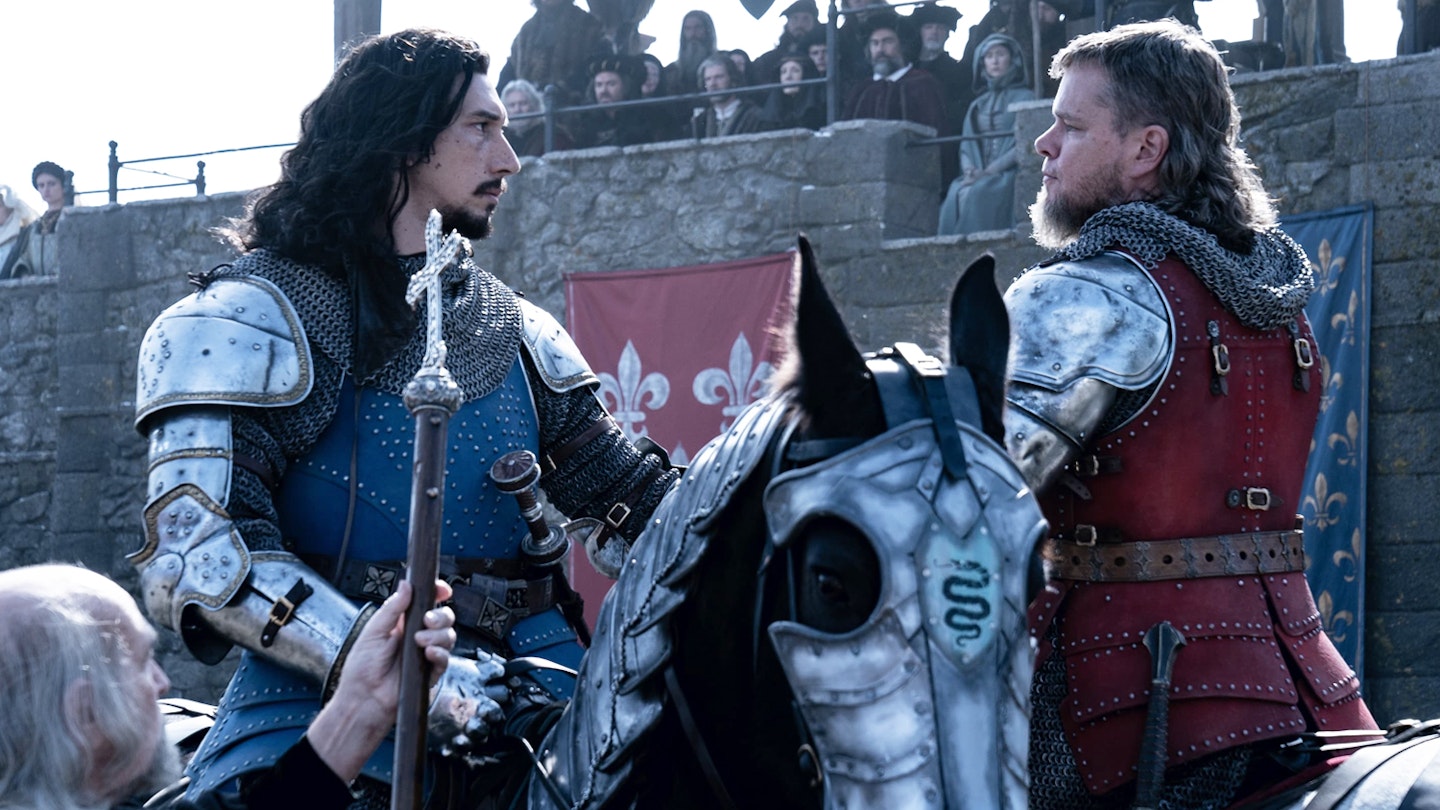
15 Oct 2021
The Last Duel
When it comes to historical drama, Ridley Scott has always been drawn to the bloody spectacle of the battlefield: in Ancient Rome’s dusty arenas ( Gladiator ) or in Crusader-era Jerusalem ( Kingdom Of Heaven ). So to find his sharp eye focusing again on the distant past, and a crowd-drawing conflict, should come as no shock. But what’s surprising about The Last Duel is how little time it spends with its swords drawn.

Instead, we spend much of its two-and-a-half-hour length observing fascinating snippets of medieval French life (running a household, degrading dowry negotiations), zoning in on a rape trial. What this highlights is how abusive and repressive 14th-century Europe was to its women, here embodied in the real historical figure of rape survivor Marguerite de Carrouges ( Jodie Comer ). However, it takes time before we get to the crux of the matter: “Rape is not a crime against a woman” in this society, we learn. “It is a property crime against her husband.” Furthermore, if Marguerite’s husband loses the trial-by-combat he’s demanded to settle the matter, she’ll be deemed a liar in God’s eyes and burned at the stake.
With its Rashomon -inspired three-act structure, it is that husband, portrayed by Matt Damon with an ’80s mullet and an uncertain accent, who gets the first say (written by Damon). This gives the film a slightly awkward start as it presents a bitter man’s litany of grievances at the hands of playboy count Pierre d’Alençon — played with cynical relish by Ben Affleck .
It’s not until the final segment, written by Nicole Holofcener, that the film finds its true and most compelling voice.
The second part, scripted by Affleck, switches POV to d’Alençon’s favourite squire, Jacques Le Gris ( Adam Driver ), a charmer used to getting whatever he wants, who lusts after Marguerite with atrocious results. Despite being his take on events, there is, thankfully, no narrative attempt to excuse his behaviour, or his crime (which we have to watch twice, so be warned).
But it’s not until the final segment, written by Nicole Holofcener , that the film finds its true and most compelling voice in Marguerite, impressively portrayed by Comer as a woman not so much ahead of her time as reasonably defiant against its patriarchal travesties. You might not feel it was worth sitting through Jean and Jacques’ entitled versions to get to this, but they do provide the frustrating context of what Marguerite is up against in daring to speak out.
It’s almost a shame when Scott reverts to form and finally brings out the lances and blades. While the climactic joust is masterfully wrought, it sidelines Comer, and you’re so galled by the self-aggrandising, testosteronal idiocy of the men participating that it’s a tough sequence to be thrilled by, despite the stakes.
Though that is kind of the film’s point. There’s nothing to cheer. We might be more than 600 years past this perverse sense of justice, but when it comes to the treatment of women like Marguerite, The Last Duel suggests, we haven’t come as far as we might think we have.
Related Articles

Movies | 19 06 2024
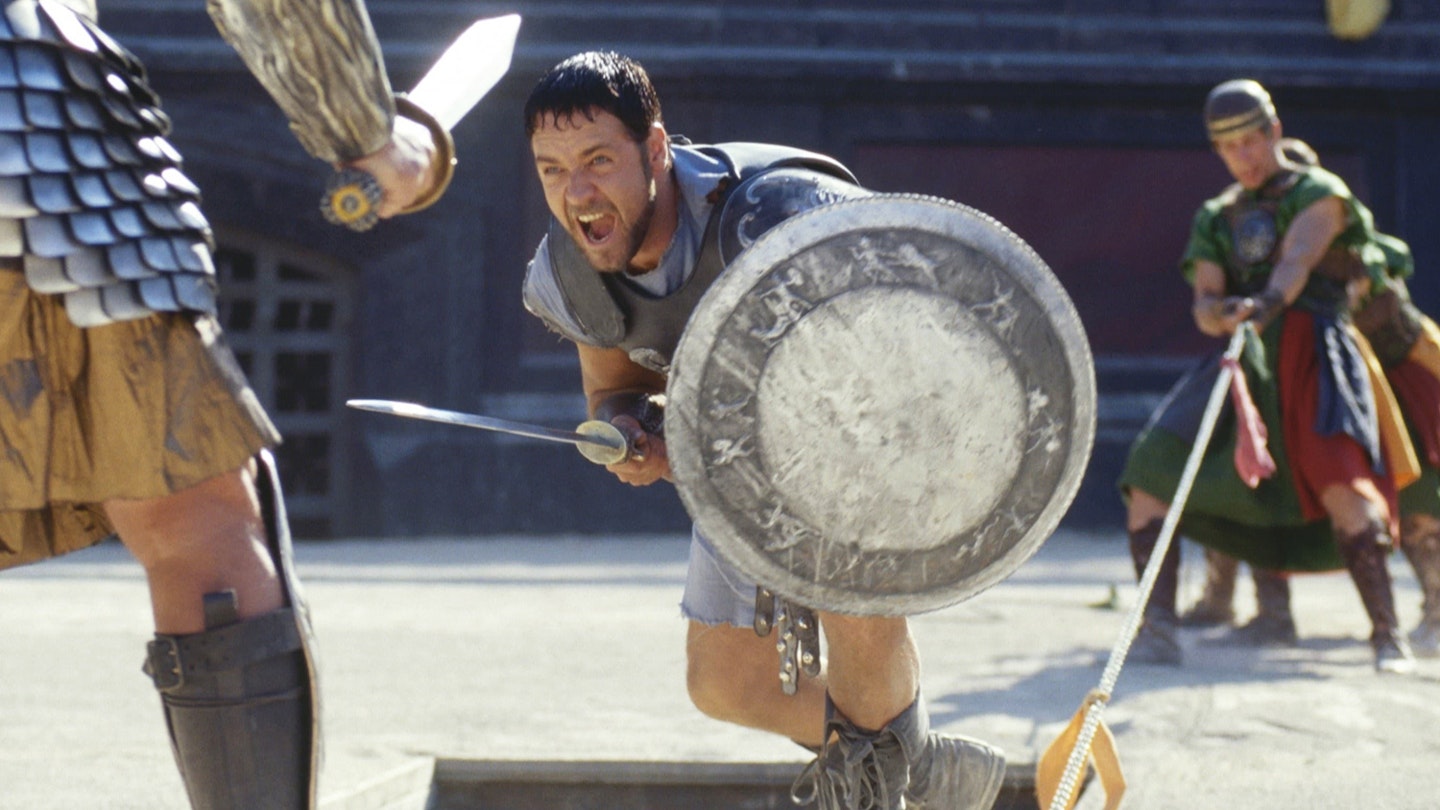
Movies | 05 05 2023
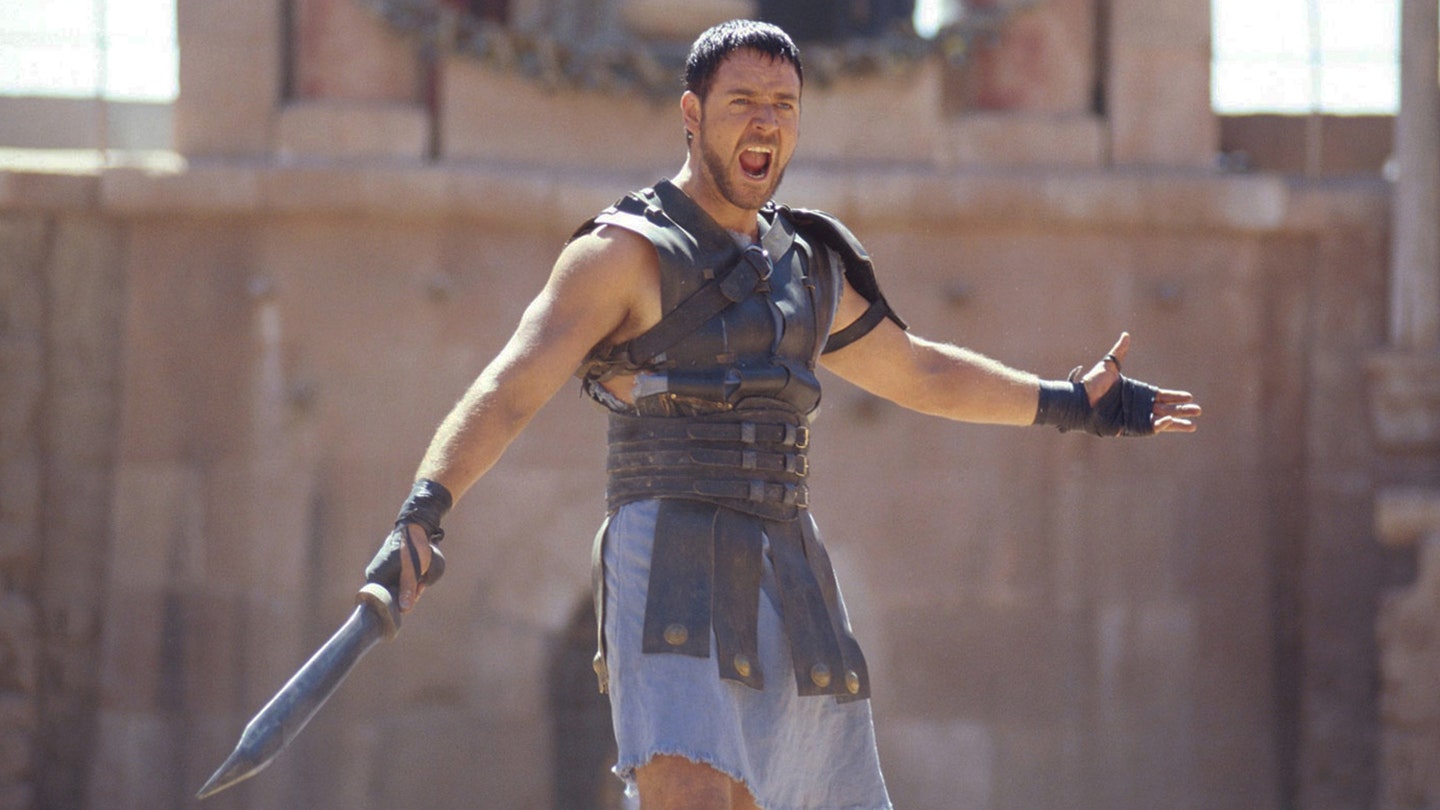
Movies | 29 09 2021
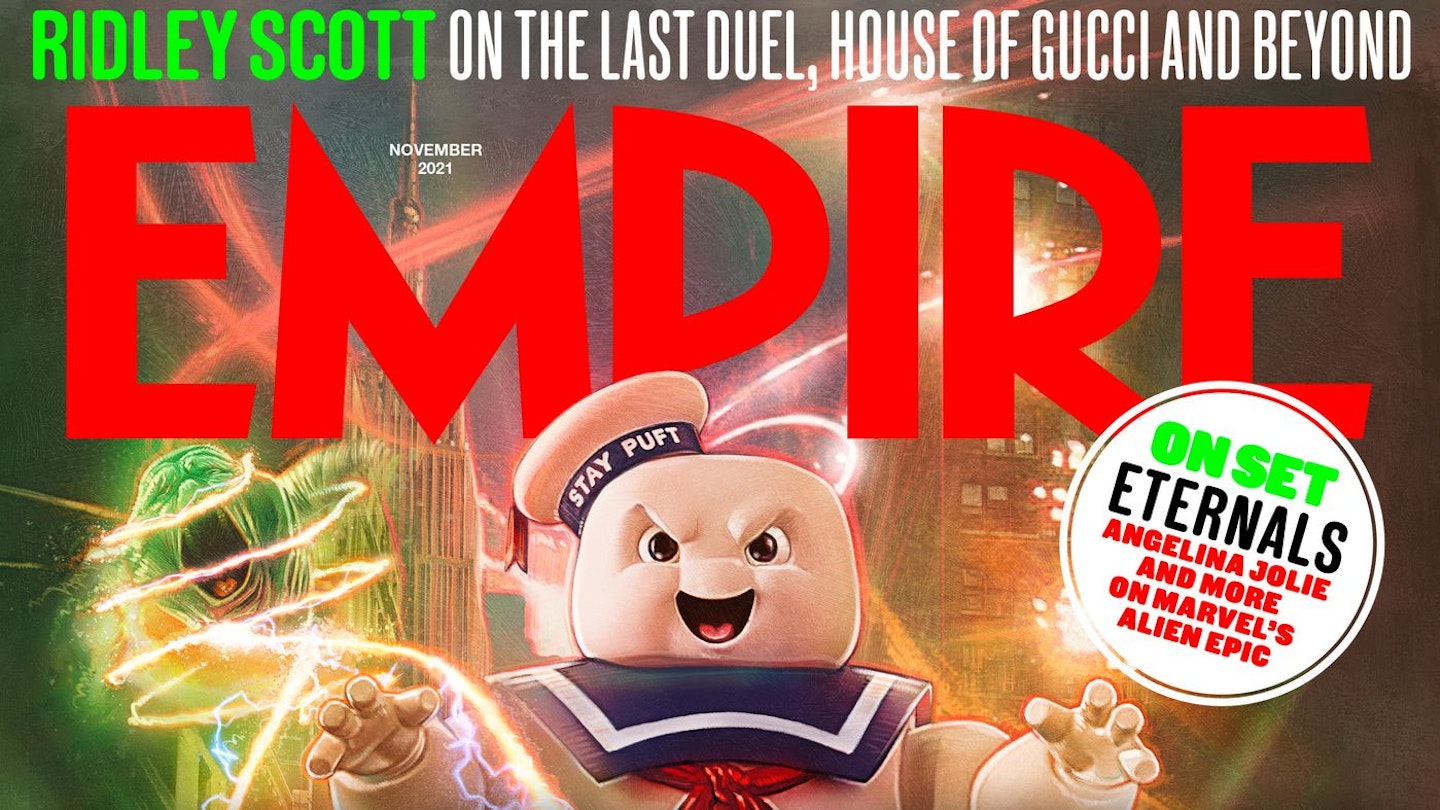
Movies | 28 09 2021
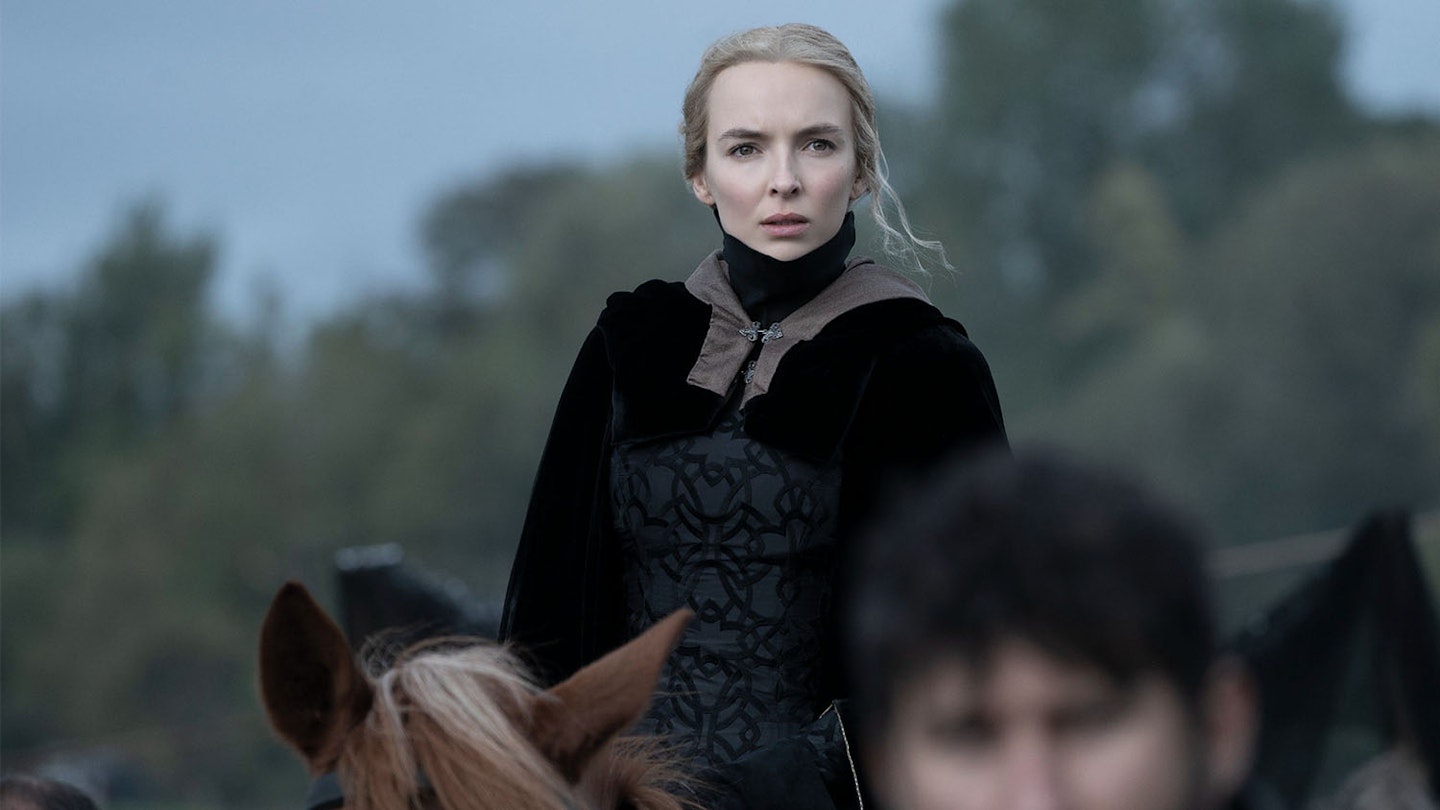
Movies | 27 09 2021

Movies | 12 09 2021

IMAGES
VIDEO
COMMENTS
After a prologue presenting the beginning of the title duel—a match to the death between squires and one-time friends Sir Jean de Carrouges and Jacques Le Gris (Damon and an especially tense-necked Adam Driver, respectively)—the movie takes a "Rashomon"-inspired structure. The first "Truth According To Chapter" belongs to Damon's de Carrouges.
Rated 5/5 Stars • Rated 5 out of 5 stars 11/28/21 Full Review Brian B As much as I liked The Last Duel the viewpoint of Adam Driver and Jodie Comer characters should have been switched Rated 3.5 ...
'The Last Duel' Review: A Medieval Epic in the Age of #MeToo ... Nicole Holofcener and two of the movie's stars, Matt Damon and Ben Affleck. ... The Last Duel Rated R for sexual violence and ...
Based on actual events, the film unravels long-held assumptions about France's last sanctioned duel between Jean de Carrouges (Matt Damon) and Jacques Le Gris (Adam Driver), two friends turned bitter rivals. Carrouges is a respected knight known for his bravery and skill on the battlefield. Le Gris is a Norman squire whose intelligence and eloquence make him one of the most admired nobles in ...
THE LAST DUEL is a super immersive production, brought to life by powerhouse performances, thats brutal and entertaining, as well as thought-provoking. Simply a great package.
Jodie Comer and Adam Driver star in 'The Last Duel,' Ridley Scott's historical drama of dishonor and justice in medieval France, also starring Matt Damon and Ben Affleck who co-wrote the film with ...
Movie Review: In the medieval epic 'The Last Duel,' Matt Damon plays a loyal soldier whose wife (Jodie Comer) accuses his estranged friend (Adam Driver) of rape. Ben Affleck steals the show as ...
The Last Duel is a sprawling, often ungainly movie — a talky, three-part Rashomon-style drama that mixes past and present-day politics — but there's a bracing intelligence to its messiness.It ...
Adam Driver and Matt Damon in 'The Last Duel.'. Patrick Redmond/20th Century Studios. Jean and Jacques are actually old friends thanks to their time in the trenches together, though it's hard to ...
The second part, scripted by Affleck, switches POV to d'Alençon's favourite squire, Jacques Le Gris (Adam Driver), a charmer used to getting whatever he wants, who lusts after Marguerite with ...